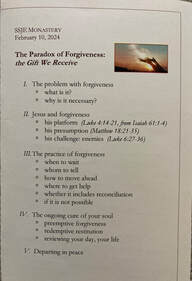
The Paradox of Forgiveness: the Gift We Receive
Br. Curtis: SSJE Monastery: February 10, 2024
• I didn’t cause it
I can’t heal it
I can’t stop it
- • It is hardest to forgive those we have hurt
- • Everyone is the apple of God’s eye—God sees us up close
- The need to forgive is a set up—God is behind it
- We can be prepared to forgive, but not to be forgiven
- If I have no compassion for someone, I don’t know enough about them (their story)
- If someone is causing my suffering, they too are suffering
- Tolerance is the antigen to forgiveness.
- Did they do the best they could?
- Gift-oblation-bread and wine
- Prison includes the victim and the victimizer
- Family, friends, neighbors and enemies—four categories Jesus speaks of
- Our enemies are our best teachers
- Ask for space in my soul for what Jesus is talking about
- Don’t place eternal damage on people
- What is in the way of my forgiving?
- Forgiving is tedious
- Maintain a posture of forgiveness
- Pray good for politicians—light, life and love—God adores them
- Sometimes what is forgiven is only transformed into a scar
- Gifts come from a crucible
- Jesus teaches ONE Gospel

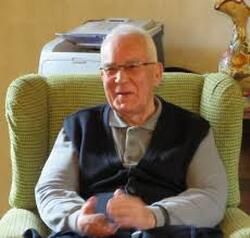
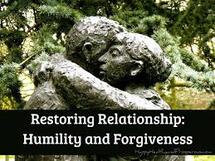
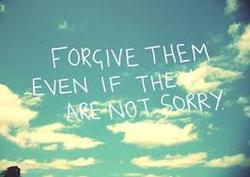

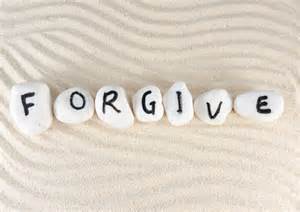



 RSS Feed
RSS Feed